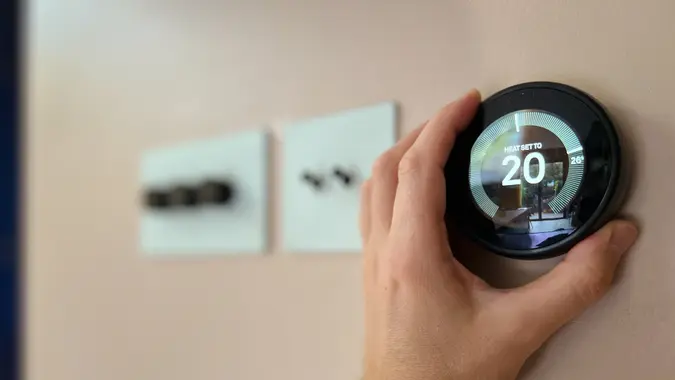How To Avoid Being Underwater on a Mortgage in Retirement

Commitment to Our Readers
GOBankingRates' editorial team is committed to bringing you unbiased reviews and information. We use data-driven methodologies to evaluate financial products and services - our reviews and ratings are not influenced by advertisers. You can read more about our editorial guidelines and our products and services review methodology.

20 Years
Helping You Live Richer

Reviewed
by Experts

Trusted by
Millions of Readers
Many people plan to fund their retirement partly with money from the sale of their primary home. This is an excellent plan if housing prices rise, which would leave you with money in your pocket after your mortgage is paid in full. But you could also find yourself underwater on your mortgage when you try to sell it due to falling housing prices or other reasons. Being underwater on a mortgage is a nice way of saying you owe more on your mortgage than what your home is worth.
If money from the sale of your home is a vital part of your retirement strategy, be sure you know how to avoid being underwater on your mortgage going into retirement.
What Should You Avoid?
You have no control over a declining housing market, in which homes are selling for less now than when they were purchased. If that happens, many people will be singing the blues with you.
But there are some factors you can control, according to Quicken Loans. Be sure to avoid these pitfalls to avoid being underwater on your mortgage, especially if you’re nearing retirement.
- Poor home condition. If your home is in serious disrepair, it will cost you when it’s time to sell. Doors that don’t shut right, broken fixtures and decrepit floors are all no-gos. Treat your home as your greatest asset; do what’s necessary to maintain its value.
- Small down payment. A small down payment results in a large mortgage. It might be worth it to stretch for the most house you can get, but doing that leaves you vulnerable to everything from a declining housing market to the consequences of falling behind in your mortgage payments due to lost jobs or serious illness.
- Low appraisal. When you set the sale price for your home, that price is based on what comparable homes in your area are worth. If your home does not compare favorably, your appraisal will be low, even if your home is in great condition. Pay attention to what other homeowners in your area are doing with their homes. You may not want a pool, but if everyone else has one, you’ll need to see what else you can do to up your game.
What If You’re Already Underwater?
According to Quicken Loans and Ramsey Solutions, there are several things you can do to get out from being underwater on your mortgage while staying put in your current home and closing your equity gap.
Make Extra Principal Payments
Making extra principal payments won’t cause your home to be worth more, but it does mean you’ll owe less on your home.
You can consider various ways to make extra money to help make the extra payments. A few of those include taking on a side gig, renting a room or the basement in your home, and forgoing discretionary spending.
Increase Your Home’s Value
You can consider making some DIY or low-cost improvements to your home to increase its value. Once you’re done, you can request a new appraisal.
Here are a few home improvements you could do to increase the value of your home.
- Build a patio or walkway
- Update your kitchen appliances
- Give your home’s interior a fresh coat of paint
- Improve your curb appeal with flowers and a new mailbox
- Reseed any bare patches on the lawn
- Lay a new kitchen floor with self-sticking tiles
- Swap out your thermostat for an energy-efficient model
- Pay for a home inspection and correct the things you can
More From GOBankingRates
 Written by
Written by  Edited by
Edited by 

























